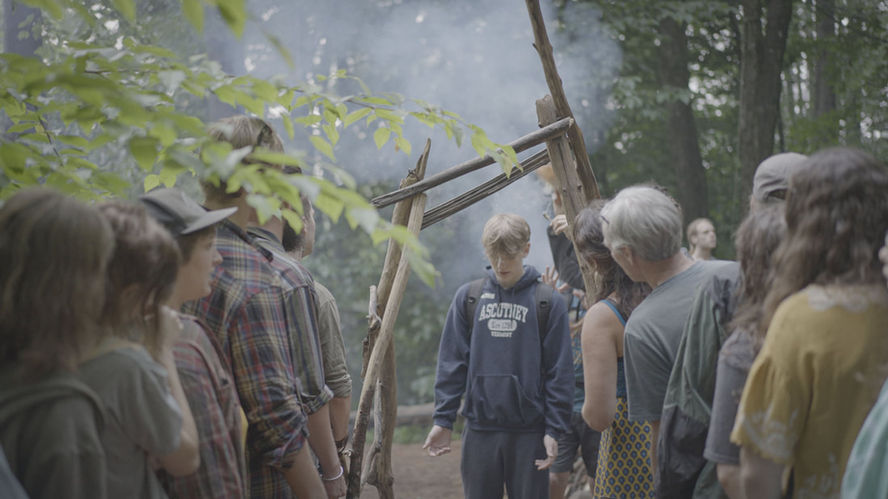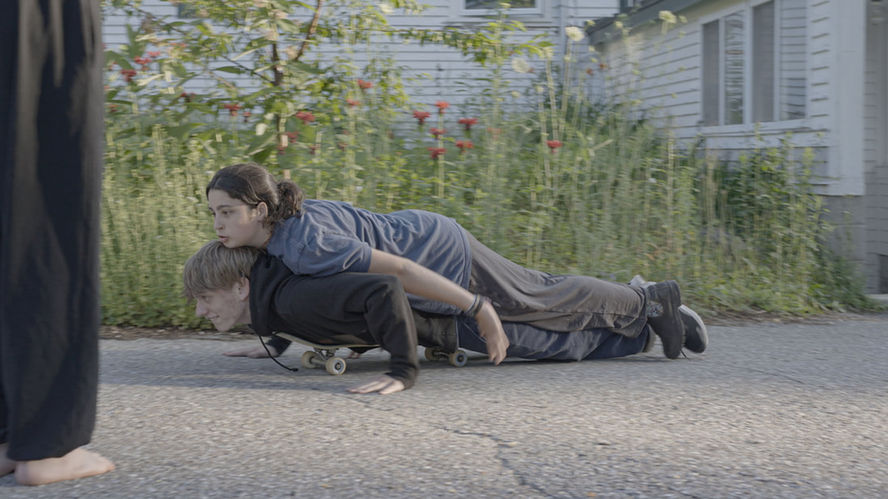
Rites of Passage
Throughout history, cultures worldwide have provided their youth with sacred initiation ceremonies marking the transition from childhood into adulthood. This initiation is a rite of passage from one way of being to another. This process of initiation helps youth to become aware of their life’s purpose, and awakens them to the special gifts they have that will enable them to contribute to the overall well-being of the world.
Malidoma Some, an initiated elder of the Dagara tribe of Burkina Faso in West Africa has spoken articulately of the need for healthy rites of passage in the West: “The absence of formal initiation in the West is why young people create their own informal initiations, such as engaging in reckless and dangerous behavior... “ He goes on to say, “Maybe drug addicts and alcoholics are trying to break into a different state of reality, as happens in a true initiation. The problem is their initiations never end” (Some, Leslee, Two Worlds, p 6).
ReTribe provides safe space for youth to go through this vital transformation that they so desperately need, in a healthy, supervised environment. Additionally, ReTribe provides these opportunities to the many adults who did not have access to these experiences during their youth.
Key Elements
The Process
Our retreats flow with the four basic stages of a rite of passage, as defined by Arnold van Gennep:
separation, preparation, threshold, and re-integration.
Separation
Teens leave their homes and come to the retreat center where they are separated from their parents and friends and enter into a new culture.
Preparation
We use community-building techniques of cooperative play, trust exercises, and music making, to create a space where teens can feel safe to express themselves. We hold deep sharing circles where teens can begin to see and be seen by their peers and mentors, and get in touch with the parts of themselves they would like to transform. In order to change, they need to know where they are and where they want to be. We also prepare the teens with meditation and mindful movement practices that help to center their minds and bodies and give a solid grounding to the deep emotional work we do.
Threshold
We use a variety of methods to create a threshold experience including The Adventure Game, Breathwork, trance dance, wilderness solo, and steam lodge. What these processes all have in common is the ability to bring teens into a sacred space where they can experience new states of consciousness to open them up to deep healing and transformation.
Reintegration: Parent Ceremony
At the end of each retreat, parents and guardians gather to learn about rites of passage, the psychology of raising teenagers, and how to support teens at home after their experience. We hold a ceremony to welcome the teens back into the larger community. Here teens announce their affirmations to show the adults a peek into how they have grown.
After the Retreat
Many teens return to ReTribe year after year, forming a close community of peers who uphold a culture of compassion. This is an important support network, and we encourage participants to reach out to each other. Our Teen Naturalist Program is a space for teens to reunite each month and learn crafts, play games, and share in small groups. We also invite you to stay connected by coming to our Work & Play Parties each Summer & Fall.
Processes of Healing
Threshold Experiences
While all ReTribe retreats hold to the same principals of earth connection and acceptance, and all include meditation, mindful movement, music, ritual, community building, and deep sharing, at each retreat we predominantly use different methods of generating the transformational experience. At "The Adventure Game Retreat," we use improvisational theater and role play adventure and at "The Inner Journeys Retreat" we use Breathwork; deep breathing techniques that induce healing states of consciousness, Nature Immersion practices such as steam lodge and wilderness solo as well as Shamanic Journeying and Ecstatic Dance.
Adventure Game
During an Adventure Game, retreat participants learn improvisational theater and play. Teens are taught to duel with foam swords, and practice "dying well." They are introduced to an imaginary world and are taught to transform themselves into a character within that world. Each teen puts their everyday clothing on a shelf, exchanging it for a costume which encourages them to put their old personality (their habitual ways of acting, thinking and feeling) aside, and try on a new one of their own creation. A shy, withdrawn girl may play a domineering, evil witch, while a tough kid may become a kind, heroic prince. At the end of the day, when it's time to put their old clothes back on, they may not wear their old personality in quite the same way. They will have had a glimpse behind their mask, and have seen that their personality isn’t who they truly are; that who they really are is something far more universal, more enduring, than their outward personality. It is at this point that they will have a deep realization that they have the ability to choose who they really want to be in life.
Because they will be acting out their old and new roles in a live action adventure, they will be gaining these insights, not merely intellectually, but in a deep, visceral way. In the adventure, many teens will come face to face with “death” and be confronted with psychological, emotional, and physical struggles while playing out their roles. Malidoma Some talks about the importance to teens of experiencing a real sense of danger and even the possibility of death: “Let’s remove the [actual] danger…but we shouldn’t remove from their minds the possibility of death” (Some, Leslee, Two Worlds, p 9). Though we will never trick teens into thinking they are at real risk during the game, they will still be able to experience, through fantasy play, some of the chemical and emotional reactions they so desperately seek when they engage in reckless behavior. This experience serves to "wake the teens up" and support the development of a strong and healthy ego that is necessary for maturation.
After spending the day as a new personality, teens come out of the adventure with the understanding that they have the freedom to transform themselves and become whoever and whatever they want to be. They have the opportunity to experience what Shakespeare meant when he said: “All the world's a stage, and all the men and women merely players… and one man in his time plays many parts.” Teens leave knowing that they can now choose to play, not the part they think they must play, but rather the one they want to play in life, a role which will best serve themselves and the world.
Breathwork
During our Inner Journeys retreats, we use Integral Breathwork, a therapeutic modality that uses full and deep breathing as a means of healing and transformation. An energy charge is created in the body, and as the energy disperses, it serves to release or cleanse blockages, both physical and emotional. Possible experiences include resolution and release of current problems and unresolved childhood wounds, birth memories, past life remembrances, encounters with archetypes (gods and goddesses etc.), nature identification (i.e. the experience of being a tiger or a mountain), transcendence of time or space, direct experiences of the primordial vibration in the form of inner light or music, and deep peace.
Nature Immersion
Each day teens have a time to sit alone in a chosen space on the land. Towards the end of Inner Journeys, the teens go out on an extended solo (between 6-24 hours depending on the commitment level they choose) where they can be with themselves and connect with the natural world. This process is followed by a community steam lodge, where mentors and teens join for a ceremony of release, giving thanks, and meditation inside a lodge heated with stones.
Closing Ceremony & Bardic Circle
We finish our retreats with a Closing Ceremony & Bardic Circle where teens have the opportunity to be seen by their community and to celebrate the personal transformation they have gone through. This Bardic Circle and final evening is also a party, and through celebration we experience the joy that comes with growing and changing, and see that though the process is hard, the payoff is well worth it.
Explore the Retreats
A TV interview with ReTribe Elder, Jane Martin
on the importance of Rites of Passage work
Podcast Episode and Workshop with Michael Meade
These studies confirm that when youth lack a rite of passage experience, there are extraordinary consequences related to such problem behaviors as violence, substance use, gangs, bullying, and delinquency. Citations in professional literature and popular media ascribe risk-taking behavior of youth (Lewis and Lewis 1984; Merten 2005) as their attempts to create rites of passage for themselves.
Rites of passage during adolescence.
Scott D. Scheer, Stephen M. Gavazzi , The Ohio State University
David G. Blumenkrantz Center for the Advancement of Youth, Family, and Community Services, Inc.
Join Our Team
Are you excited to inspire and empower youth?
Join our team of mentors guiding young people through nature exploration, community building, and creative play.



















